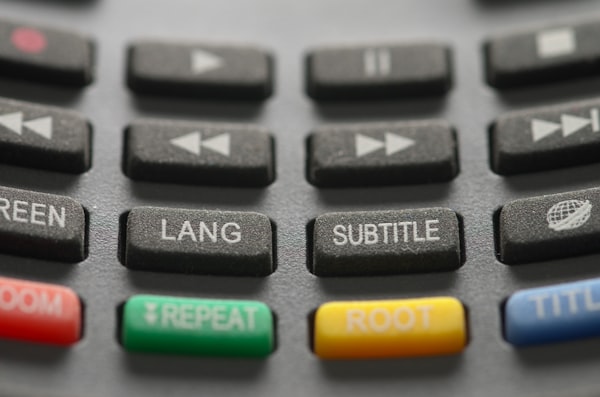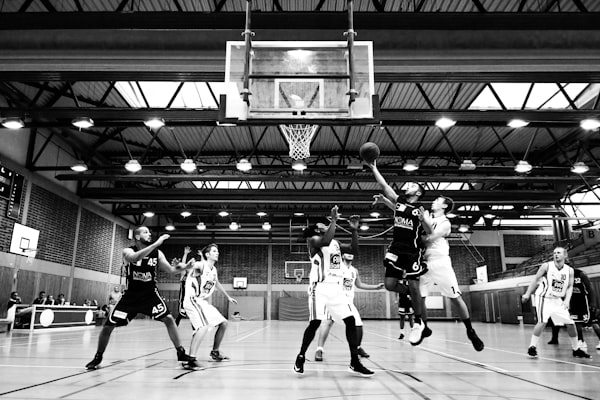The 2014 movie Whiplash will always be remembered in my head for one standout quote:
There are no two words in the English language more harmful than "good job."
When I first heard it, such a quote seemed ridiculous. "I could think of a dozen more harmful sentences, phrases, and insults!" I thought to myself.
However, what I didn't realize at the time was that within this context, harm isn't just strictly delivered in the form of cruel statements.
No.
Sometimes, harm strikes when soothing words lower your guard.
The Race Against Yourself
Make no mistake – the race that I'm referring to is the one you have against yourself.
You're not exactly in the same race as other people are, because nobody on the planet shares the exact same background, life story, nature, and nurture that you do.
However, being in a race all by yourself is no excuse to slack off.
You might think that not racing against other people means you can slow down and not push yourself.
Go at your own pace, but understand that settling for the bare minimum, or even stopping to stare without moving forward, aren't healthy practices.
And not living up to unrealized potential is one of the biggest mistakes you could ever make. At least, not attempting to live up to it.
If you don't believe me, take a look at some examples of what falls under not living up to unrealized potential:
- Not asking out someone you like because you're afraid of rejection.
- Not applying for that job because you don't think you're qualified.
- Ghosting on a confirmed date because you think the other person doesn't really like you anyway.
- Not taking a vacation because you're worried about falling behind on work.
- Not having kids because you're afraid you won't be a good parent.
- Not starting your side hustle because you think people will mock you for it.
The list goes on. And it serves to prove my point that if you don't dare to try to see what you're capable of, if you don't increase your pace or attempt to sprint, you'll just be a tortoise in a race that doesn't beat the hare.
The Problem With ”Good Job”
Let's dive more deeply into what J.K. Simmons's character in the Whiplash movie, Terrence Fletcher, stated. When he said that "There are no two words in the English language more harmful than "'good job.'"
I'd like to establish that there is an important distinction between getting praised, and getting praised too much.
I basically grew up without praise. My parents were never particularly proud of what I did, and nothing I ever did satisfied them. If this wasn't the case, they failed to show it, and that was a failing on their part.
I ended up having to be my own motivation. I had to push myself. Drag my feet through the race. Crawl through it. Bleed on my own through it. There was no external praise to push me forward. No resounding "good job" to keep me going.
Like I said earlier, it's not so much the act of praise that's the problem.
It's when someone takes the praise so seriously that they lose their touch, get sloppy, and get complacent, that it's an issue.
This is the idea that Fletcher was trying to push. He wasn't exactly an amazing teacher, but he wanted to push his students beyond what they thought was possible, even if it meant taking a toll on their health.
He was a diehard advocate of living up to unrealized potential, to a fault.
But he wasn't without his reasons.
One shouldn't get overly lax after hearing that they did a good job. If anything, being told that you did well should encourage you to continue with the same amount of effort, if not more to produce an even more magnificent result.
Similarly, just because you did well at something doesn't mean that you should settle at that level as though it's your maximum.
Progress doesn't happen in the comfort zone. It doesn't happen when you get all cozy with your praise and stop trying.
Of course, this isn't to say to drive yourself to madness and settle only for impossible-to-reach perfection. If you watched the movie, you've seen how Neiman spirals and loses himself in his zealous pursuit to "be one of the greats."
Strike a healthy balance between drive and acceptance.
Drive yourself with:
- An ambition to better yourself because life is one long game of self-improvement.
- An understanding that unlived potential can lead to a lot of misery and unfulfillment.
- A want to get better results and reach a higher place in life, in whatever area that suits you.
Balance that with acceptance by:
- Recognizing that you're not perfect and never will be, so don't beat yourself up for not eliminating all your flaws.
- Remembering that you've already come quite far in ways that you may not have even considered.
- Knowing that you're not undeserving of praise just because little to no people in your life have ever told you that you've done well.
Strike this balance, and I'd say you've done a good job.










Member discussion